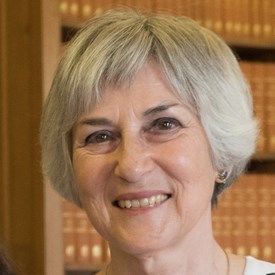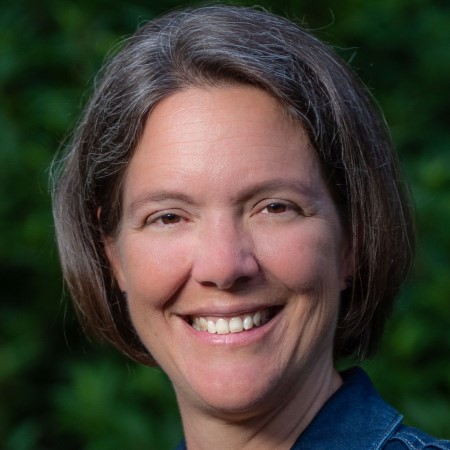Professor Veronica van Heyningen FRS discusses the challenges to intergenerational fairness within research culture, and introduces our Changing Working Lives project.

The way research is conducted, and the norms, values, attitudes, and behaviours of research communities, have a huge effect on scientists and their output, as does the demographic composition of the scientific workforce. Over the course of the pandemic, the patterns of our working lives, in research and many other domains, have evolved rapidly - and in some cases almost seismically. That is why, in 2021, the Royal Society’s Diversity and Inclusion Committee convened an online meeting to define what changes are taking place in research cultures, and identify the emerging challenges and opportunities.
During the meeting, the challenge of demographic change, with rising numbers of older people and a falling birth rate, was very clearly presented in data prepared by the Office for National Statistics. Keynote speaker Professor James Banks [University of Manchester and Institute for Fiscal Studies] showed how our working lives are already longer - and retirement for skilled workers, such as researchers, will probably include a combination of pensions and continuing work. Many social changes, some of which were accentuated and even validated by the effects of the pandemic, also contribute to changing working lives: more part-time work, and more job transitions at various career phases, including late stage. The discussion highlighted that this is considered desirable for all concerned. The skills and experience of older scientists are likely to be very useful in mixed teams, which may well be led by researchers at the intermediate stage of their career. However, in a system where resources of both funding and space are limited, there was considerable enthusiasm for promoting intergenerational fairness. The most senior scientists need not necessarily remain in a group leadership role until the very end of their career. Their many hard-won skills can be used to help establish and sustain younger leaders. Special support systems are being developed for early-career researchers (ECRs) but there are fewer resources being directed to mid-career researchers (MCRs), who, in their prime, may be in the best position to meet the demands of senior leadership roles. Action is needed here.
Progress has begun in a number of areas. There is more awareness of work-life balance, and more willingness to acknowledge its importance. A wider spectrum of caring roles are being recognised, and they are beginning to receive better support from the research communities and organisations.
The rise of teamworking and recognition of its effectiveness may well help to establish more mixed-discipline, mixed-age, and mixed-skills teams as the ideal unit of research activity in several STEM areas. There is substantial emerging evidence that teamwork is more effective in delivering novel results, and is more enjoyable for the participants. With a broader spectrum of team members new approaches to sharing tasks, responsibilities, and recognition, can be developed. It seems likely that scientists will also benefit from interactions with social scientists to improve team building and promote wider delivery of new ideas and technology.
This new dialogue needs to be continued and built upon. The Royal Society is planning a series of focus groups with early-, mid- and senior-career researchers to discuss the different challenges encountered, and potential solutions to overcome them. These conversations may help guide the development of a more robust system of interdisciplinary endeavour, at a time when novel scientific approaches are more necessary than ever to solve huge world-wide problems. Demonstrating the advantages of inclusion and fairness will hopefully trigger the evolution of diverse, supportive research cultures.
If you are aware of any policy/practice on how issues of intergenerational fairness are dealt with in workforce planning, please do get in touch using the details here. We are interested in evidence from across employment sectors and industries (both STEM and non-STEM), as well as from higher education.
We are also hoping to recruit a diverse pool of participants for focus groups in autumn 2022. If you would be interested in participating in a focus group to share your thoughts on the challenges and opportunities that scientists face at different career stages, please complete this short screening survey.





